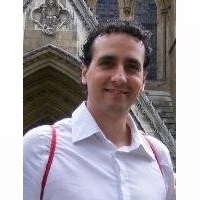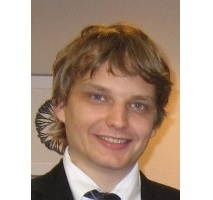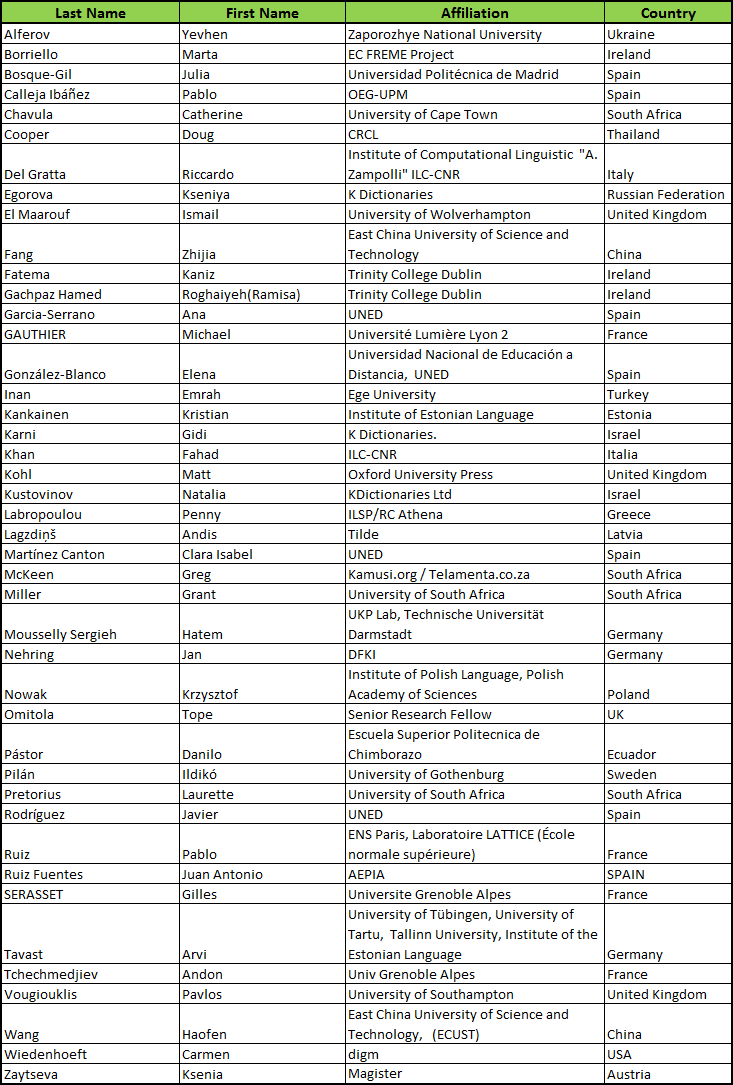

The 1st Summer Datathon on Linguistic Linked Open Data (SD-LLOD-15) will be held from June 15th to 19th 2015 at Residencia Lucas Olazábal of Universidad Politécnica de Madrid, Cercedilla, Madrid.
The SD-LLOD datathon has the main goal of giving people from industry and academia practical knowledge in the field of Linked Data applied to Linguistics. The final aim is to allow participants to migrate their own (or other's) linguistic data and publish them as Linked Data on the Web. This datathon is the first organized in this topic worldwide and is supported by the LIDER FP7 Support Action
During the datathon, participants will work on:
During the datathon, seminars will be organised to cover:
With the objective of avoiding passive learning, the program of the summer datathon will contain three types of sessions:
Participants are expected to bring to the datathon some dataset of linguistic data produced by their organizations in order to work on it during the hacking sessions and transformed into Linked Data. For participants who cannot provide their own linguistic dataset, the organisers will provide one.
Participants will be provided with digital copies of all the material used during the course and will have access to computers with all the required software pre-installed.
We welcome participants from anywhere in the world and coming from industry or academia. Some basic acquaintance with software development and Web technologies is required. Participants are expected to participate fully in the activities of the datathon until its conclusion.

Rodolfo Maslias “Institutional Terminology, Tools and Communication”. Monday 15th 9:30 Abstract - Slides Christian Chiarcos “Linked Open Dictionaries (LiODi) Lexical and phonological search in multilingual dictionaries”. Tuesday 17th 9:30 Abstract - Slides Marta Villegas “Publishing and Consuming Linked Data. (Lessons learnt when using LOD in an application)”. Wednesday 18th 9:30 Abstract - Slides Piek Vossen “The Global Wordnet Grid”. Thursday 16th 9:30 Abstract - Slides
Asun Gómez-Pérez “Maximising (Re)Usability of Linguistic Resources using Linked Data”. Monday 15th 10:30 Slides John McCrae “lemon: The Lexicon Model for Ontologies” Monday 15th 14:30 Slides Felix Sasaki "Roundtripping of NIF based Linguistic Linked Data with non linked data sources“. Tuesday 16th 10:30 Slides Jorge Gracia “Apetium RDF: an experience in generating linguistic linked open data”. Tuesday 16th 14:30 Slides Philipp Cimiano “Linked Terminologies: applying linked data principles to terminologies”. Wednesday 17th 10:30 Slides Gilles Sérasset “The DBnary eco-system, data and APIs”. Wednesday 17th 14:30 Slides Víctor Rodriguez-Doncel “Rights and licenses for language resources”. Thursday 18th 9:30 Slides
Monday 15th “Introduction to Ontologies, RDF and LD” Jorge Gracia “Multilingual LD generation and publishing” Jorge Gracia and Daniel Vila-Suero Slides “lemon” John McCrae Slides Tuesday 16th “NIF” Ciro Baron and Bettina Klimek Slides “RDF generation with D2RQ” Andrejs Ābele Slides “BabelNet and BabelFy” Tiziano Flati Wednesday 17th “lemon-ade” Mariano Rico Slides

My name is Jorge Gracia del Río. I am a researcher at Ontology Engineering Group (OEG), Artificial Intelligence Department, Universidad PolitC)cnica de Madrid (UPM), Spain. My main research interests are Semantic Web, Ontology Matching, Multilingual Web of Data, Query Interpretation, Web Intelligence.
For further information, please visit my personal website B;

I am a post-doctoral researcher at the University of Bielefeld in Bielefeld, Germany. I am currently working in Prof. Philipp Cimiano's group, AG Semantic Computing. My research interests include the following: ontologies and the lexicon-ontology interface, collaborative development and publishing of language resources, big data and data science, linked data and the Semantic Web, etc.
For further information, please visit my personal website B;
We welcome participants from anywhere in the world and coming from industry or academia. Some basic acquaintance with software development and Web technologies is required. Participants are expected to participate fully in the activities of the datathon until its conclusion.
The number of attendants to this datathon will be limited to 50. Registration is now closed. The cost of the datathon is sponsored by the LIDER project, which includes accommodation and meals of participants. However there will be an administrative fee of 50 euros for registering in the datathon. A limited amount of travelling grants will be available for attendants from less-developed countries who cannot cover their trip with other funds.
You will receive the selection result at mid of March. If you are one of the selected students, you will also receive the payment instructions.
Registration opens: January, 19th 2015
Registration closes: March, 25th 2015 (Previous March, 15th 2015)
Notification: April, 3rd 2015 (Previously March, 23th 2015)
Payment: from May, 10th 2015 to May, 20th 2015
Datathon: June, 15th to 19th 2015

Here you can find a brief report summarising how the datathon went
Here there are some pictures from Twitter
The Summer Datathon on Linguistic Linked Open Data (SD-LLOD-15) will be held at Cercedilla (Madrid), which is a small village in the mountains near Madrid.
The event will take place at the Residencia Lucas Olazábal of Universidad Politécnica de Madrid, which is located in Cercedilla, in the forest of the Sierra de Guadarrama, in a place known as Las Dehesas de Cercedilla, which is 50km from Madrid, and 15km from Navacerrada (Directions).
The nearest airport is Adolfo Suárez Madrid-Barajas. Once you are in Madrid, the best option to go to Cercedilla is by train. The estimated time of the whole trip (from Adolfo Suárez Madrid-Barajas airport to Cercedilla Residence) is around 2 hours.
If you reach to Terminals 1, 2 or 3 in Adolfo Suárez Madrid-Barajas Airport
Go to the metro station and take take line 8 (the pink line on the map) to Nuevos Ministerios statin. Leave the metro station and go to the train station (Cercanías Renfe). Then take line C8B to Cercedilla.
If you reach to Terminal 4 in Adolfo Suárez Madrid-Barajas Airport
Go to the train station and take line C1 to Chamartín. Then take line C8B to Cercedilla.
The train depot in Cercedilla is 1.5 km away from the Residence. You should take a taxi to get to the residence. Here are numbers for Taxis in Cercedilla:
(+34) 61 980 64 52
(+34) 65 026 30 43
(+34) 61 922 62 72
Besides, members of the summer school will be giving direction of how to get a taxi on the train station.
If there is nobody waiting for you at the Cecerdilla train station, please phone the following numbers:
(+34) 91 852 23 78
(+34) 91 858 20 06
From Madrid, motorway A-6 until the exit El Escorial, Guadarrama. Take direction Guadarrama until crossroads with the old N-6 (it is a crossroads with traffic lights where you can see El Piquio Hotel). Turn left and cross Guadarrama village until Cercedilla indication (it is a road on the right, next to a headquarters). Go straight on road until Cercedilla. When you pass the Cercedilla’s train station, go straight on next crossroads Las Dehesas – La Fuenfría direction. When you arrive to forest information turn right following Residencia Lucas Olazábal UPM direction.